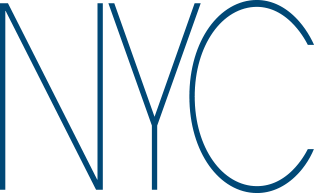Author: Jorge A. Mestre
International arbitration practice has been growing in Florida—especially in Miami—for many years. This is evidenced, in part, by the Florida International Arbitration Actʼs passage almost twenty years ago. The Act set out to encourage international arbitrations in Florida. And thanks to the Florida Supreme Courtʼs recent opinion adopting the proposed amendments on the multijurisdictional practice of law, this trend should continue.
The newly-adopted bar rules and rules of judicial administration allow a lawyer from any country in the world (whether or not that lawyer is admitted to practice in Florida) to participate in international arbitrations in Florida without giving notice to the Florida Bar, without paying a fee, and, more importantly, without a limit on the number of appearances that lawyer may make in any given year. E.g., R. Regulating Fla. Bar 1-3.11. Thus, Miami has gotten out of the starting blocks and is gaining on the current leaders of the international arbitration race.
I. International Arbitration appeals to companies involved in foreign trade and investment.
International arbitration continues to grow in popularity with companies doing business in Latin America—particularly large, sophisticated, multinational corporations. Its popularity continues to grow because it allows the parties to choose their own rules and the law under which the arbitration panel will decide the dispute. It also allows the parties to choose the decision makers, that is, the arbitrators. And for the party that does not want to litigate in the opposing partyʼs home courts, it provides a neutral ground. Furthermore, it helps prevent forum shopping and the drawbacks of concurrent jurisdiction (for example, competing judgments).
All this makes international arbitration an ideal system for cross-border dispute resolution for multinational corporations doing business in Latin America.
II. Miami is gaining momentum as a venue of choice.
When selecting the venue for international arbitrations, parties seek an arbitration-friendly forum. This newly-adopted rule is important because if the Florida Bar had a rule on its books that parties perceived to be anti- international arbitration, it would have been hard to change that global perception. Instead, parties would have chosen other venues for their arbitrations. Why? Because lawyers drive where arbitrations are held. And the cities that make it easy for lawyers to practice there will get the arbitrations. The new rules make it clear to the world, and, more specifically, to Latin America, that Florida welcomes international arbitrations—a positive development for Spanish-speaking lawyers in Miami.
Bilingual lawyers are poised to benefit most because the majority of documents in these cases are in Spanish. In addition, Spanish is often the official language of the entire proceeding, including the written claims and motions. Thus, Spanish-language ability becomes indispensable to the client and gives Miami its edge.
III. Bilingual, Bilingual, Bilingual.
For some time now, Miami has enjoyed a bigger demand for legal services than cities of comparable size because of our location and the human capital of our bilingual bar (of course, especially the Cuban-American Bar). As a result, the practice of law in Miami has become more and more international over time. And because Miami has always wanted to attract international business, it also needs to be a place where parties feel comfortable in arbitration. That is because with increased business activity come business disputes. And businesses need to know they can resolve their disputes in whatever manner they choose using whatever lawyers they choose. Because of Floridaʼs decision to create a system without limitations on foreign lawyers, Miami can now take its rightful seat as the choice venue for international arbitrations related to Latin American trade and investment.
But even after Miami becomes a prime venue, what we (Miami lawyers, that is) really want is for the parties to hire Miami lawyers. Usually, the parties want lawyers with international arbitration experience—something that our bar possesses. Parties also want lawyers with Spanish-language ability—again, something our bar can deliver. Thus, it is important that the next generation of Cuban-American lawyers preserve and perfect this language skill. (Whatʼs more, itʼs probably a good idea to strive to be trilingual— English, Spanish, and Portuguese.) Clients also prefer that a law firmʼs staff have Spanish-language ability, as many Miami staffs have. Therefore, itʼs clear that we have all the tools necessary to attract this type of work.
IV. The time has come to pick up the pace.
By adopting the new rules, companies will continue to bring their cases to Miami, which, in turn, will generate work for many able Miami lawyers. As a result, we need to seize the opportunity and promote Miami as the international arbitration venue of choice. In particular, those transactional lawyers among us should try to choose Miami as the arbitration venue in all agreements that contain arbitration clauses. For instance, often times, an agreementʼs venue provision is not vigorously negotiated. Instead, the lawyer drafting the agreement merely uses boilerplate language from another agreement that chooses one of the usual suspects—for example, London, Paris, or New York—as the arbitrationʼs venue. This should no longer happen; Miami should be the new boilerplate.
Original publication available at CABA Briefs (page 15).



